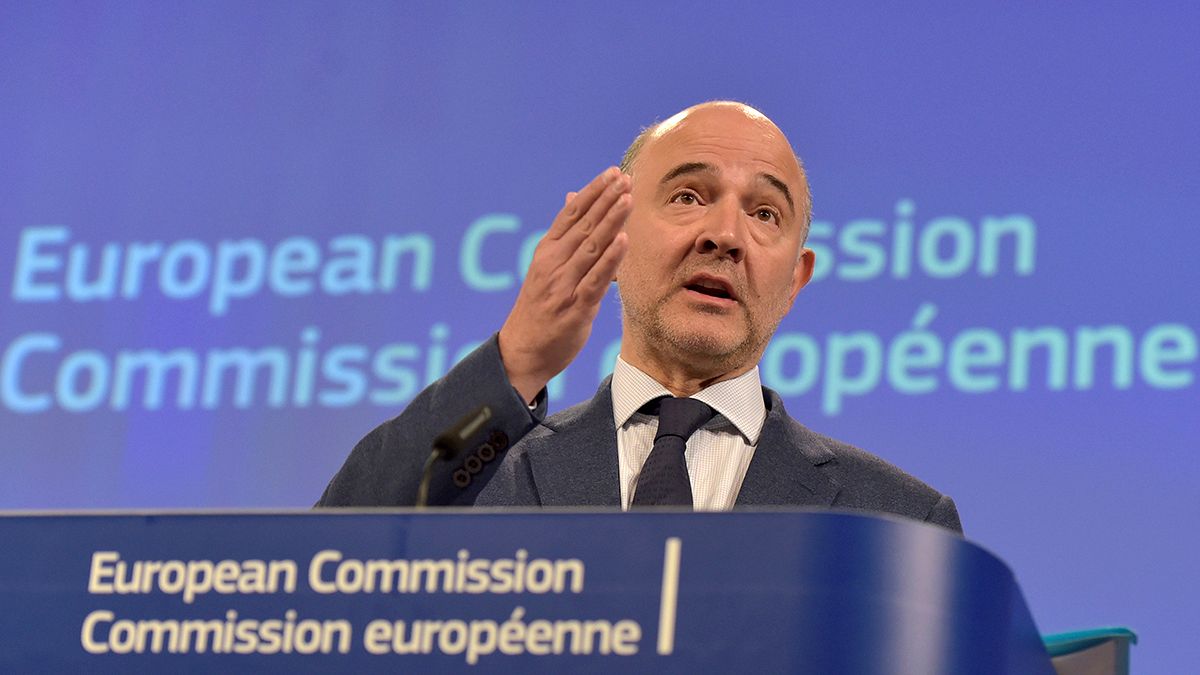Euronews spoke to the EU Commissioner for Economic and Financial Affairs, Pierre Moscovici, at the Brussels Economic Forum
Euronews spoke to the EU Commissioner for Economic and Financial Affairs, Pierre Moscovici, at the Brussels Economic Forum, the flagship annual economic event of the European Commission.
Now in its 16th year, the forum brings together more than a thousand participants, including top EU and international policymakers.
Euronews’ Frédéric Bouchard asked Moscovici about reform in the EU and the British referendum on EU membership.
Frédéric Bouchard: “In your speech at the forum you raised the need for structural reforms but also the need to communicate, to explain the reforms to citizens. Does this mean it hasn’t been done correctly, given what we’re seeing in certain countries, including France, for example?”
Pierre Moscovici: “Europe has just been through its most important crisis since the Second World War. And in this context, the context of higher deficits, exploding debt, economic structures that needed to be more competitive, reforms were carried out, they were necessary: pension reforms, labour reforms in most countries, and all countries should do this.
“But there’s also a price to pay for these reforms. A short-term economic cost, a social cost, a political cost, with the rise of populism. And that’s why today I appealed for what I call the reforms of the second generation. This means reforms capable of reconciling Europeans with Europe, reforms that people are able to take ownership of. And I want to insist on the fact that now we have come through the crisis we should take note of the damage but also move onto the next step, a solid restart.
“We have to insist on education, what I call human capital, which enables us to be strong in terms of the workforce. It means not only primary and university education, but life long learning. Training is the big project but also innovation, research and development. This will enable us to create the economy of the future and invest more for example in infrastructures. I think today the big task is to reconcile economics with the social and the politics, and to do this in such a way that Europeans can be proud of their reforms.”
Frédéric Bouchard: “Reconcile the economics and social issues, but when we see the labour reforms in France, which are out of step with what’s been done in other states, and when we see the reaction in the street, don’t you have the impression that France is a country that has difficulties carrying out reforms?”
Pierre Moscovici: “The country is capable of reforming itself but it has to do it by taking into account its own social structures and political, and plan the reforms well. Everyone can’t do the same reforms in the same way, in the big and small nations. You have to take into account national circumstances and so reforms can’t be carried out in a standard way.
“But when it comes to labour reforms, I’m very clear. We need labour reforms, ambitious reforms; because otherwise you always have the same people in work and the rest excluded. If you want to have mass unemployment forever, don’t change. If we want to be able to create jobs, yes reforms are needed.”
Frédéric Bouchard: “The other important subject is the referendum on Britain’s EU membership in just under two weeks. Polls show it’s neck and neck. I imagine the commission is prepared for the worst. Is there a plan?”
Pierre Moscovici: “It’s really about shared interests, for the British and for the Europeans, that we don’t work on another scenario. After we will see what happens the day after.”
Frédéric Bouchard: “But it’s hard to believe that the commission does not envisage the worst, preparing in case of a vote for a Brexit, Britain leaving the EU.”
Pierre Moscovici: “No one can predict in a scientific way what will happen the day after. That’s politics, the dynamics of it, we don’t know what will happen. We ask ourselves as an ordinary citizen a simple question: what solution is the most beneficial for my country and for myself. And I haven’t seen anyone able to prove economically that to leave the European Union is something positive. On the contrary everyone could see, and international institutions showed us in a serious way, the economic risks of a Brexit. We have to avoid that, and I think British voters, no matter what their feelings or emotions, they will be rational.”
